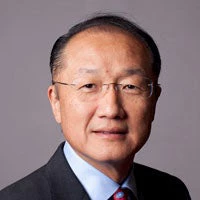
But every year, in countries across the world, too many dreams are cut short: more than 5 million mothers and children die from preventable causes. Globally, nearly a quarter of children under 5 are malnourished and 260 million are not in school.
In this age of rapidly advancing technology, where there is a growing demand for complex cognitive skills and problem-solving, this crisis should be a wake-up call.
This is why we launched the Global Financing Facility (GFF) in support of Every Woman, Every Child in 2015 with the United Nations, Canada, Norway, and other partners.
The GFF works with countries to transform how they invest in the health of their people. It works in three ways:
1) It helps governments build one vision and one plan to meet the health and nutrition needs of the country’s women, children and adolescents—of those who have been left furthest behind. The plan involves a range of partners, including civil society, health experts, multilateral and bilateral partners, private sector, and many others. It focuses on high-impact areas such as family planning, nutrition, maternal and newborn health. .
2) The GFF then works with countries to mobilize and coordinate financing behind the plan—bringing together increased domestic resources, bilateral financing, World Bank financing and the private sector—while increasing the efficiency and impact of investments. It focuses on filling the gaps to ensure women and children can access the basic health services they need to survive and thrive. The approach has a focus on results, ensuring the money invested provides a strong return on investment, which we measure in lives saved and improved.
3) The GFF also explores innovative ways to leverage and increase financing over the long term so countries can build and sustain primary health systems. These innovative financing mechanisms include loan buy-downs and funding packages when the money is invested in health and nutrition. To date, $482 million of GFF Trust Fund financing has been linked to $3.4 billion in World Bank financing, which is beginning to deliver health and nutrition outcomes. The GFF also collaborates with the private sector to deliver better results rapidly,, especially in fragile settings.
For example, in the northeast of Nigeria, where there has been long-lasting conflict and basic health services are lacking, the GFF partnership is helping to re-establish maternal, newborn and child health and nutrition services. By linking financing to results, local governments are making rapid progress, including increasing births attended by midwives from an estimated 5 percent coverage to 40 percent.
Like Nigeria, Cameroon is working with the GFF to increase its investment in health and nutrition. Cameroon is increasing its health budget allocation to the primary and secondary levels from a baseline of 8 percent in 2017 to 20 percent by 2020, which is leading to great progress. Family planning visits are surging, and many more women are going to their antenatal appointments.
And in Indonesia, the World Bank is supporting the government’s impressive effort to drastically reduce stunting, using a grass-roots approach employing community workers to deliver health, nutrition, water and sanitation, and early childhood education services to mothers and children. As part of the health plan, the GFF also provided a grant to look at the quality implementation and results of this program, including identifying the highest-priority investments, improving coordination, looking at scaling up the use of disruptive technology, and supporting financing reforms to improve efficiency and transparency.
At the World Bank, we recently launched the Human Capital Index, which is changing the conversation about human capital and accelerating more and better investments in people. We see platforms like the GFF as critical tools to help countries invest more, and more effectively, in their people.
On November 6, the World Bank will co-host the replenishment of the GFF in Oslo alongside the Governments of Norway and Burkina Faso and the Bill & Melinda Gates Foundation. The GFF’s replenishment event is a critical milestone that will enable the GFF to expand from 27 countries to as many as 50 countries with the greatest health and nutrition needs. This has the potential to contribute to saving as many as 35 million lives by 2030.
With millions of children growing up without adequate nutrition and health care, and mothers still dying from pregnancy and birth-related complications, there is no time to lose.
This post was originally published on LinkedIn.


Join the Conversation